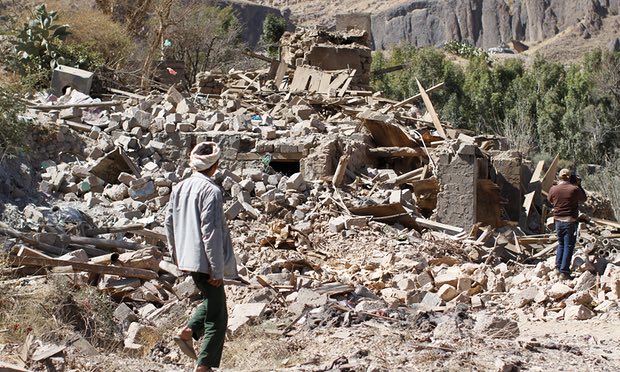
Most Britons believe selling arms to Saudis is ‘unacceptable’

The case, on Tuesday, comes at a time when Theresa May’s government is keen to
promote UK arms exports. In a post-Brexit world, ministers believe the arms
industry could be a major beneficiary when the UK establishes new trade deals.
Last month, May agreed a £100m deal to help equip the Turkish military with
fighter jets.
But an Opinium poll conducted for the Campaign Against the Arms Tradesuggests
the government’s enthusiasm for selling weapons to regimes with questionable
human rights records is firmly out of step with public opinion.
The poll shows that 62% of people surveyed think selling arms to Saudi is
unacceptable. More broadly, more than seven in 10 people (71%) think that the UK
should not promote the sale of weapons to foreign governments accused of
violating international humanitarian law. Six in 10 (60%) agree that the
government should not promote sales to countries that are not democracies. Only
a quarter (26%) agree that the UK should promote the sale of British military
equipment to foreign governments, compared with a third (34%) who disagree.
The high court case will place all UK arms exports under close scrutiny.
CAAT is calling for the Department for International Trade to suspend all
existing arms export licences and to stop issuing further licences to Saudi
Arabia for military equipment intended for use in Yemen while it reviews the
compatibility of the exports with UK and EU legislation.
"UK fighter jets and bombs have been central to the devastation [in Yemen],”
said Andrew Smith of CAAT. "Whatever the verdict, it won’t be the end of the
issue. May and her colleagues must listen to the public and finally end their
toxic military relationship with Saudi Arabia.”
The UK has sold over £3.3bn-worth of arms – including fighter jets, bombs and
missiles – to Saudi forces since the bombing of Yemen began in March 2015. But a
range of international organisations, including a UN panel of experts, the
European parliament and many humanitarian NGOs, have condemned the ongoing Saudi
air strikes against Yemen as unlawful and are backing the rare legal challenge
to the government.
They say that UK law, the global arms trade treaty – to which the UK is a state
party – and international law require the UK to ensure that its arms transfers
do not aid the commission of war crimes by Saudi Arabia.
Human rights groups including Amnesty International allege the air strikes are
in violation of these laws for a number of reasons, including the
disproportionate harm done to civilians and civilian infrastructure and the
destruction of cultural property.
"The UK government’s repeated refusal to halt arms transfers beggars belief,
given the extensive and credible reporting showing the Saudi Arabia-led
coalition’s ongoing serious violations of international human rights and
humanitarian law, including possible war crimes,” said James Lynch, Amnesty’s
head of arms control and human rights.
source: guardian















